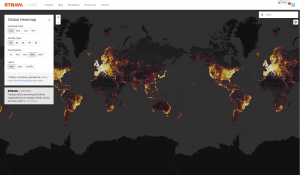News
Powerful Canadian-made hacking technology was deployed along Turkey’s border with Syria, the Associated Press reported based on Citizen Lab’s research.
Powerful Canadian-made hacking technology was deployed along Turkey’s border with Syria, the Associate Press reported based on Citizen Lab’s research.
If you’re attending the Internet Freedom Festival (IFF) from March 5-9, you’ll be in good company: Citizen Lab researchers, fellows, and associates will be participating in panels and events throughout the week. Here’s a round-up of where you can find them: Against stalkerware: building public awareness and consent technology Monday, March 5 5:00 pm – […]
Cyber Steward Network partner Asociación por los Derechos Civiles (ADC) will lead a public hearing at the 167 extraordinary period of session of the Inter-American Commission on Human Rights (IACHR). Taking place on February 28 at 11:30 am EST, the hearing is titled “Digital Intelligence, Cybersecurity, and Freedom of Expression in America”. The topics to be addressed in […]
Citizen Lab Senior Researcher Andrew Hilts joined CBC Radio’s Spark to answer viewer questions about personal data requests during a Facebook live event.
The post covers several categories of information that can be gleaned from examining Strava’s fitness tracker data, ranging from enabling the identification of secret military facilities in “dark areas” to specific identifiable behaviour patterns of at-risk individuals.
Cyber Stewards Network organization Sula Batsu Cooperativa has been honoured with a 2017 EQUALS in Tech Award. Presented at the Internet Governance Forum at the United Nations in December, Kemly Camacho– Sula Batsu Coordinator– accepted the award on behalf of the group. They were recognized in the Leadership category for their work to create women-led […]
Data suggests that most journalism schools are struggling to provide training that properly protects journalists, their sources, and their colleagues online.
Senior Researcher Irene Poetranto will be participating in two panel discussions at IGF: Human Rights-based Cybersecurity Strategy and A Playbook for Gender Equality.
Security Planner is an easy-to-use platform with tested, peer reviewed recommendations for staying safe online. With just a few clicks, Security Planner tailors straightforward recommendations based on someone’s digital habits and the technology they use.






